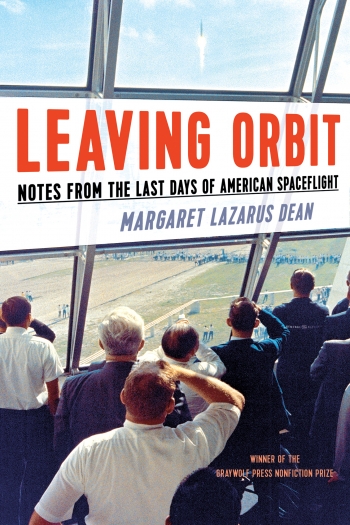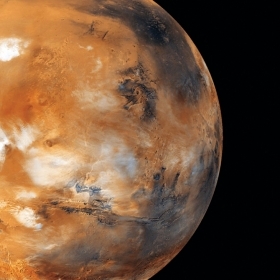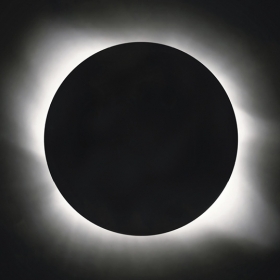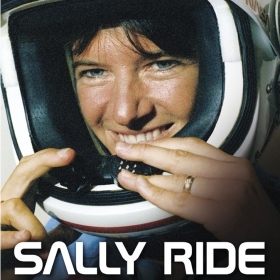Leaving Orbit is a heartfelt obituary of the final days of the NASA space-shuttle program, told poetically by Margaret Lazarus Dean ’94. A professor of English at the University of Tennessee, Dean teaches creative nonfiction writing—but grew up haunting the exhibit halls of the Smithsonian’s National Air and Space Museum in Washington, D.C. She has both the sentimental and the technical language at hand to describe the “emotional meanings of spaceflight” through the last shuttle launches as the program came to an end in 2011.
The book won the 2014 Graywolf Nonfiction Prize, awarded annually for the past decade by Graywolf Press in Minneapolis for “innovative, boundary-testing works of nonfiction.” In it, Dean takes a grand topic—the utter complexity of an enormous collaborative human project and why it was terminated—and makes it accessible to readers who might not already be spaceflight enthusiasts. She explores the human aspects of the space-shuttle program and provides enough space history to satisfy readers without a NASA background—as well as experts. She emphasizes the promise of the adventure of spaceflight, and explains how budget cuts, politics, expense, and accidents derailed the program.
To write Leaving Orbit, Dean talked with current and former astronauts to get their takes on the finality of the space-shuttle shutdown and what it means for American human space exploration, read the work of a host of authors who chronicled different portions of the program, and drove 12 hours to witness the final three shuttle launches in person. A trip to Kennedy Space Center at Cape Canaveral in Florida stirs Dean as she visits one of the largest buildings in the world, a structure used for mating space shuttles to their booster rockets. “The building is simply enormous in a way that people react to viscerally and emotionally,” she writes, noting that it is similar to how cathedral architecture affects those who step inside. Tears form in her eyes when she enters the space.
Dean’s writing is warm and inviting, a compassionate treatment of a technical topic. There are space books that laboriously focus on mechanical minutiae; Leaving Orbit isn’t one of them. “The challenges of spaceflight reveal themselves to be distinctly terrestrial,” Dean notes, describing the difficulties of launching rockets from the mosquito-laden swamps of Florida.
“Only when an era ends do you get to figure out what it has meant,” Dean writes. Leaving Orbit is a snapshot of the feelings, smells, sounds, and experiences of the final days of the shuttle program. There will be some sort of U.S. spacecraft in the future, whether it’s NASA’s planned Space Launch System or commercial endeavors such as SpaceX. Yet the end of the shuttle era meant the loss of large, ambitious, bold space exploration for NASA that not only had government support but also captured the American imagination. With the Apollo missions to the moon in the 1970s, there was a promise of a sustained human presence in space and people believed that the 21st century would see humans on Mars. The end of the shuttle program represents a loss of this optimistic vision.
Leaving Orbit is a book unafraid of the emotions that accompany the passing of a heroic period in American history, a story told through the lens of journalism, lyrical prose, and the personal stories of the people invested in the shuttle program—including Dean herself.
Springmann is a planetary astronomer with rocket science aspirations. She also cried when seeing the space shuttles in person.








We ask that those who engage in Wellesley magazine's online community act with honesty, integrity, and respect. (Remember the honor code, alums?) We reserve the right to remove comments by impersonators or comments that are not civil and relevant to the subject at hand. By posting here, you are permitting Wellesley magazine to edit and republish your comment in all media. Please remember that all posts are public.